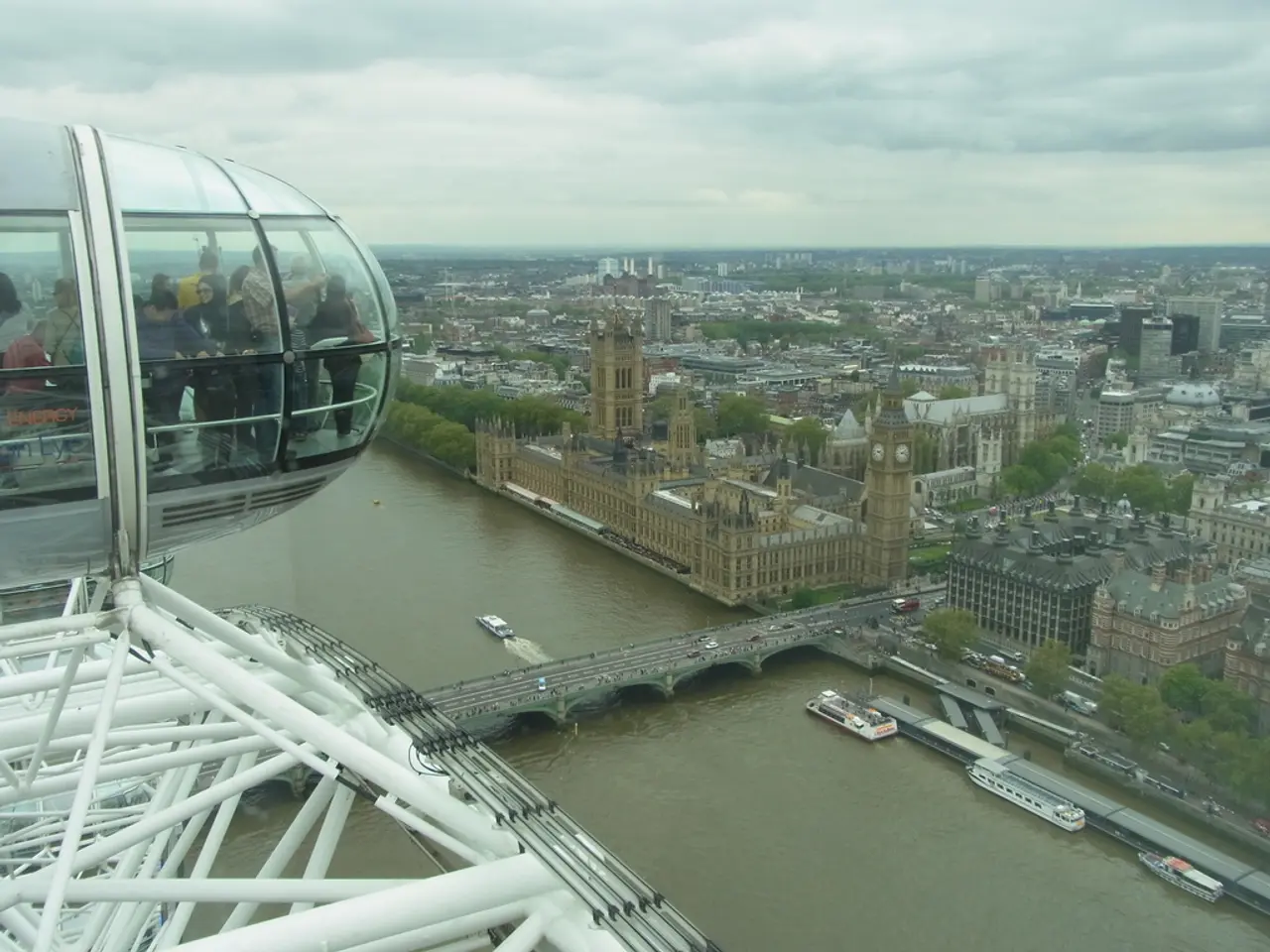Financial policy adjustments aren't a matter to be taken lightly, as demonstrated by the Oasis revival - you can't simply go with the flow.
In the present day, there are concerns that Britain's fiscal policy may follow a similar path to that of Oasis, imploding under the weight of excess. This comparison, drawn by Tim Focas, Head of Capital Markets at Aspectus Group, sees the British economy's turbulent past and uncertain future mirrored in the anthems of the iconic band.
The 1990s saw Britain's economy shaken by "Black Wednesday" in 1992, leading to a loss of economic credibility, soaring borrowing close to 8% of GDP, and market anxiety. Metaphorically, this was a time when the economy was "halfway up a Wonderwall of worry."
Following this crisis, the government pursued a strategy of fiscal prudence: tax rises, spending restraint, and inflation targeting under Norman Lamont and Ken Clarke, and later fiscal rules and Bank of England independence under Gordon Brown after 1997. This steady, credible fiscal repair restored market confidence and tamed inflation, contrasting with quick or flashy fixes.
Fast forward to 2025, and similar issues persist: Britain faces high public debt, rising interest costs, and very limited fiscal flexibility. The recent "mini-Budget" under Liz Truss demonstrated how markets swiftly punished excessive fiscal looseness. Investors are not asking for miracle fixes but rather seek consistent frameworks and discipline.
The lessons from the 1990s suggest that fiscal policy doesn't need to be Supersonic, but should be credible, disciplined, and a little more conservative. Fiscal credibility isn't glamorous, but it is the chart-topper that never goes out of style, winning investors' trust.
The return of Oasis is not just about nostalgia, but also offers a parallel to Britain's fiscal past and uncertain future. The economic "anthem" of disciplined fiscal management must play again if Britain is to regain fiscal stability. The one thing worse than looking back in anger, is being forced to look forward in fear, a reference to Oasis' lyrics.
In the mid-1990s, the British government began a program of tax rises, spending restraint, and a renewed focus on inflation to repair the economy. Governments that anchor borrowing and stick to their frameworks are rewarded by investors. In 2025, the current economic backdrop is more challenging than the 1990s, but the lessons from that time still apply.
The credibility gained in the 1990s lasted until the financial crisis a decade later. A messy backstage bust-up in Whitehall may not be entertaining for the tabloids, but gilt markets won't be so forgiving come the autumn budget. The current economic situation calls for a steady, disciplined approach, not grand gestures.
As Oasis sells out stadiums thirty years after their Britpop heyday, their music serves as a reminder of the economic challenges faced in Britain's past and the cautionary lessons for its present fiscal policy. Turbulent crisis followed by disciplined recovery, with credibility and consistency paramount—this is the economic story that Britain must learn from.
In the midst of mounting concerns regarding the sustainability of Britain's fiscal policy, the need for a cautious and disciplined approach in finance and business becomes evident. A repeat of the economic fluctuations witnessed in the 90s, demonstrated by events like the infamous "Black Wednesday", serves as a stark reminder of the potential consequences of excessiveness in financial management. Investors, moving beyond mere nostalgia, are seeking a consistent fiscal framework infused with discipline, much like the enduring chart-topper that never goes out of style - fiscal credibility.




